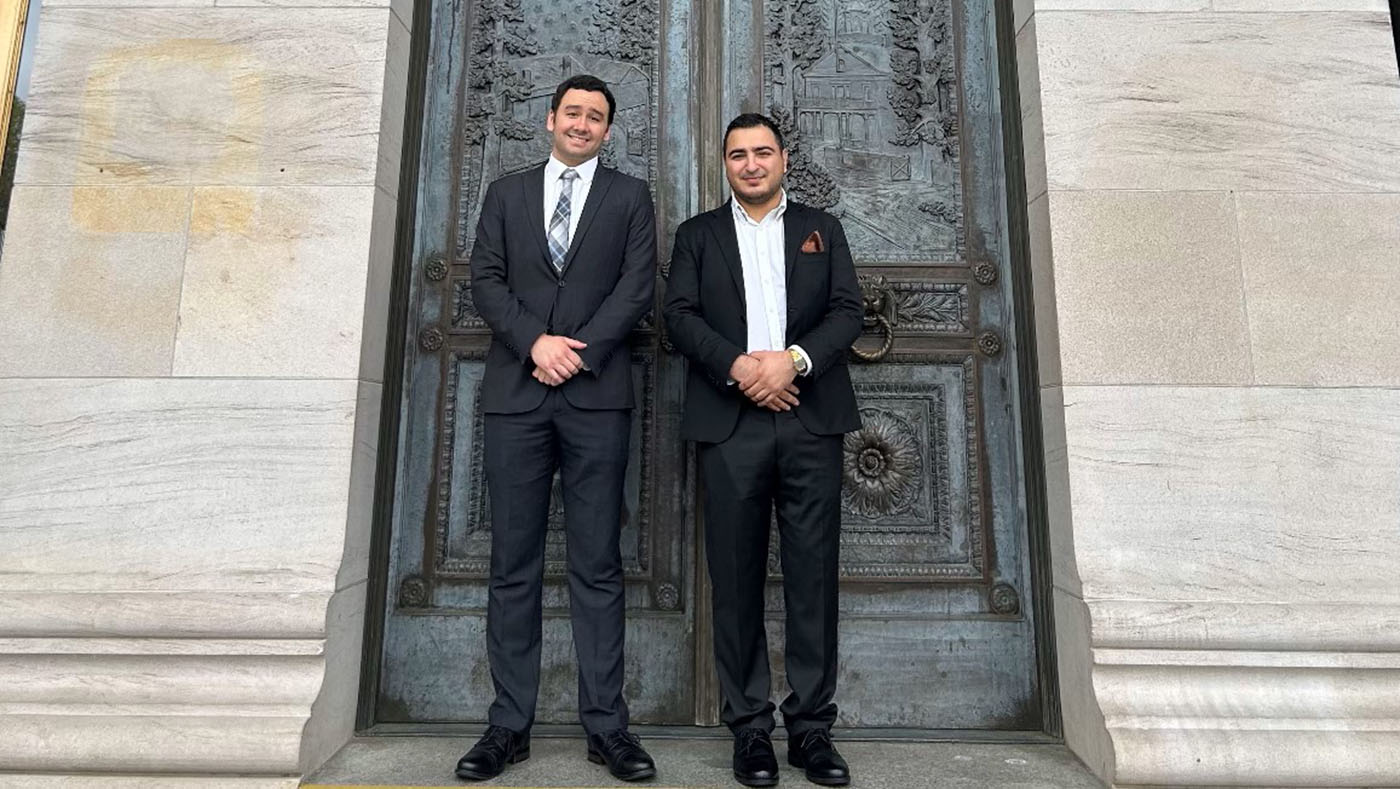Students in the law school’s Workers’ Rights Clinic joined Gov. Jay Inslee in Olympia on Thursday as he signed a bill aimed at helping low-wage workers in Washington recover from victimization by their employers.
“People work hard; they should get paid,” Inslee said as he shook hands with students David Fernández and James Stafford and thanked them for bringing the issue to the attention of the state legislature.
Assistant Professor Elizabeth Ford, the clinic’s director, called the bill “an incredibly important step forward.” The measure allows the Department of Labor and Industries to collect 12% interest on all meritorious claims of wage theft, which is when an employer illegally withholds or reduces the pay a worker is due.
“When the agency charged with enforcing labor laws fails to collect interest, that agency is effectively brokering a no-interest loan from a worker to their employer,” Ford said.
Workers’ Rights Clinic students drafted the bill last semester and clinic students this semester continued their advocacy, testifying in Olympia before the House Labor & Workplace Standards Committee about the need for relief for low-wage workers.
Fernández, a Seattle University School of Law student who advocated in support of the bill, was present at the bill signing.
“We hope that, through this legislation, more people become aware of just how pernicious and pervasive wage theft is,” he said. “We need to continue doing more to help workers."
“It costs a worker money when they do not have access to their own money,” Ford said. “When a worker who lives paycheck to paycheck isn’t paid what they are owed, that worker might need to rely on credit cards to meet basic expenses. That means an interest rate of 15%, 20%, or even higher. And fees. And penalties. Worse still, a worker without access to credit may go without food, medicine, or housing.”
Stafford, a second-year student at University of Washington School of Law, also worked on the bill through the clinic.
“It has been an honor advocating for a bill that positively impacts the lives of Washington workers,” he said. “I hope that our dedication to this bill will inspire future students to continue creating change in the lives of workers.” The clinic is open to students from both law schools.

